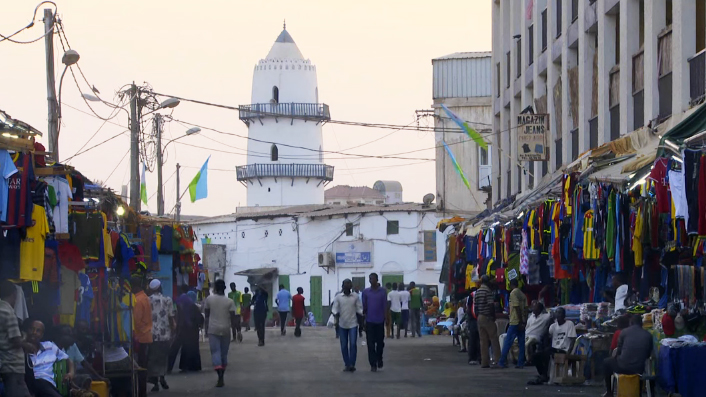DJIBOUTI – In support of the government of Djibouti’s goal of achieving universal access to electricity by 2035, the World Bank is launching a new project to bring the benefits of electricity to around 14,000 of the poorest households (or around 100,000 people).
The new US$23.3 million project will expand on infrastructure built in the poorest neighborhood of the capital Djibouti-city to connect more households to the national grid, provide more street lighting, extend power lines to the less developed interior of the country for the first time, and finance the development of a national plan to harness the country’s immense renewable energy potential.
The Sustainable Electrification Program will be funded by the International Development Association (IDA), the World Bank’s fund for the poorest countries. One of the principal aims is to build on the achievements of an earlier project to make further progress toward the complete electrification of Balbala, the capital’s largest slum.
A further aim is to extend the medium-voltage grid to the country’s rural interior. The overall goal is to connect an additional 9,000 households in Balbala and around 5,000 households in the interior, providing electricity to over 10 percent of the total population.
“Access to electricity is critical for development,” said Asad Alam, World Bank Country Director for Djibouti, Egypt and Yemen.
“We have already seen the impact in neighborhoods of Balbala that have been connected to the grid. It has helped the launch of new businesses, facilitated children to study in the evenings, facilitated the work of women, and made streets safer. The project is part of a larger slums development program and our aim is to continue working with Djibouti to ensure all its people have the benefits that come with access to basic services.”
Only half of Djibouti’s population, or around 70,000 households all in urban areas, have access to electricity. Lack of access as well as the high cost of power and interruptions, especially during the dry season, has both put it out of reach of the poorest households and impeded the growth of small businesses.
The government’s national development plan, Vision 2035, maps out a more energy secure and green future based on unlocking Djibouti’s immense potential for solar, geothermal and wind power. The new project will also finance the drafting of a National Sustainable Electrification Program to chart the course toward universal access to electricity based on expansion of the power grid and the development of renewable energy.
“By boosting access to electricity to over sixty percent of the population, and developing a roadmap for expanding access to 100 percent of the population, this project will be a critical step toward the national goal of ensuring all citizens have access to electricity,” said Roger Coma Cunill, World Bank Senior Energy Specialist and co-Task Team Leader of the project. Frederic Verdol, World Bank Senior Power Engineer and co-Task Team Leader added,
“it is essential that power lines are extended to rural regions to improve the quality of life while stemming migration to already overcrowded urban areas, and to build their capacity to continue hosting refugees from the numerous flashpoints that surround Djibouti.”
Currently, the World Bank Group portfolio in Djibouti includes 10 projects in various sectors for a total commitment of US$101.1 million in IDA financing and Trust Funds.
- World Bank



